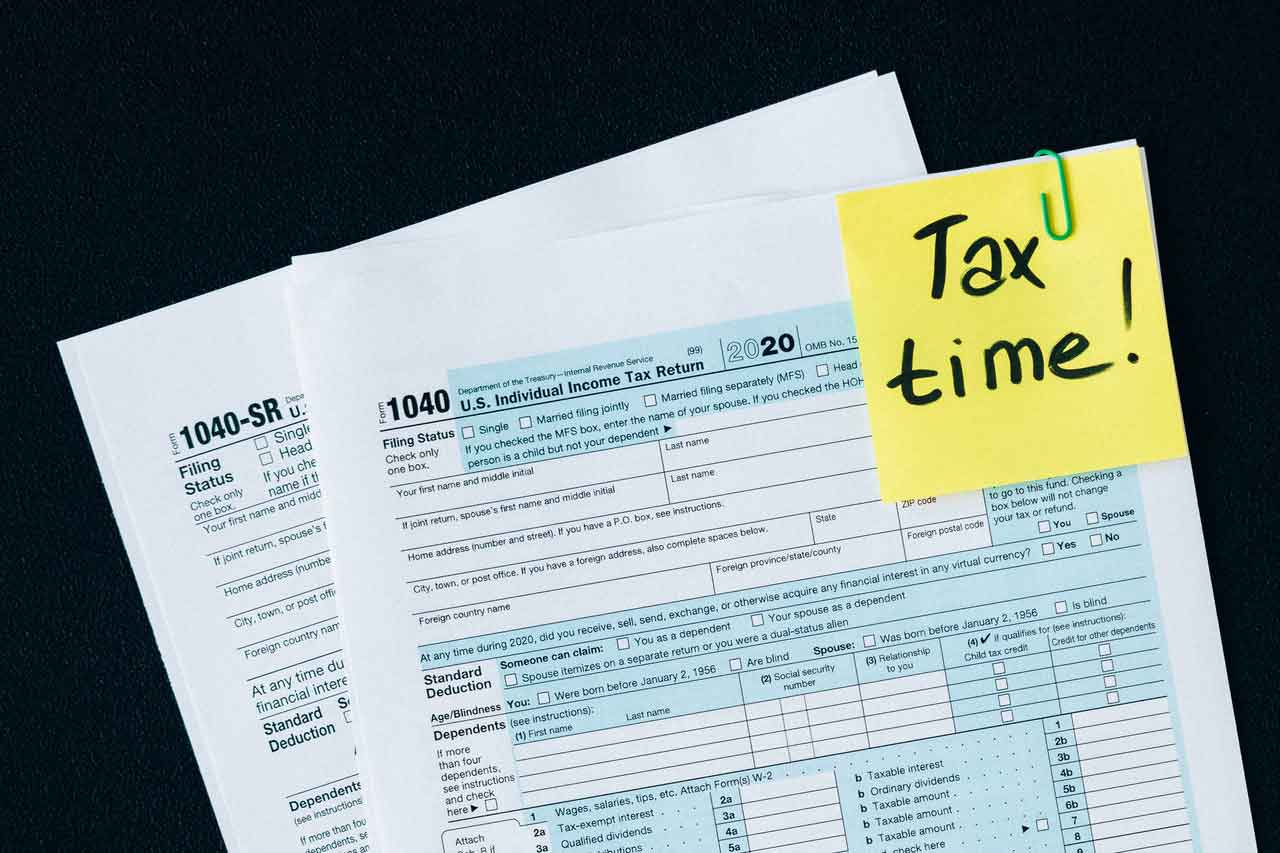
Due to the pandemic, the IRS has extended the time individuals have to file their tax returns. Tax day has been moved to May 17, 2021. Here’s what you need to know.
The Treasury Department and Internal Revenue Service have moved the federal income tax filing due date for individuals for the 2020 tax year from April 15, 2021, to May 17, 2021.
“This continues to be a tough time for many people, and the IRS wants to continue to do everything possible to help taxpayers navigate the unusual circumstances related to the pandemic, while also working on important tax administration responsibilities. Even with the new deadline, we urge taxpayers to consider filing as soon as possible, especially those who are owed refunds. Filing electronically with direct deposit is the quickest way to get refunds, and it can help some taxpayers more quickly receive any remaining stimulus payments they may be entitled to.”
– IRS Commissioner Chuck Rettig
Individual taxpayers can also postpone federal income tax payments for the 2020 tax year due on April 15, 2021, to May 17, 2021, without penalties and interest, regardless of the amount owed. This postponement applies to individual taxpayers, including individuals who pay self-employment tax. Penalties, interest, and additions to tax will begin to accrue on any remaining unpaid balances as of May 17, 2021. Individual taxpayers will automatically avoid interest and penalties on the taxes paid by May 17.
The American Institute of CPAs (AICPA) joined members of Congress and other groups in calling for the IRS to postpone the April 15 deadline.
“The COVID-19 pandemic has created immeasurable hardship for millions of taxpayers and tax practitioners, making it incredibly difficult for them to meet the April 15th filing and payment deadline. The IRS must not overlook the impact the pandemic has had on this year’s tax filing season,” the AICPA said in a statement. “In the midst of a global pandemic, parents are straining to balance remote work with educating their children at home and businesses are struggling to remain open.”
Individual taxpayers do not need to file any forms or call the IRS to qualify for this automatic federal tax filing and payment relief. Individual taxpayers who need additional time to file beyond the May 17 deadline can request a filing extension until October 15 by filing Form 4868 through their tax professional, tax software, or using the Free File link on IRS.gov. Filing Form 4868 gives taxpayers until October 15 to file their 2020 tax return but does not grant an extension of time to pay taxes due. Taxpayers should pay their federal income tax due by May 17, 2021, to avoid interest and penalties.
The IRS urged taxpayers who are due a refund to file as soon as possible. Most tax refunds associated with e-filed returns are issued within 21 days.
Last year, the tax deadline was pushed back to July 15 due to the pandemic. It was the first time in history that the filing date was postponed.
American Rescue Plan tax changes
The recently enacted American Rescue Plan made the first $10,200 of unemployment benefits received in 2020 tax-free for individuals with incomes of less than $150,000. Typically unemployment benefits are taxed as ordinary income but not subject to Social Security and Medicare taxes. The IRS has said that it would provide a worksheet for paper filers and coordinate with tax-software companies so eligible individuals can take advantage of the tax break during this tax-filing season. However, the agency also asked those who qualify but have already filed their 2020 returns not to file an amended return until it had issued additional guidance.
Estimated tax payments still due April 15
This relief does not apply to estimated tax payments that are due on April 15, 2021. These payments are still due on April 15. Taxes must be paid as taxpayers earn or receive income during the year, either through withholding or estimated tax payments. In general, estimated tax payments are made quarterly to the IRS by people whose income isn’t subject to income tax withholding, including self-employment income, interest, dividends, alimony, or rental income. Most taxpayers automatically have their taxes withheld from their paychecks and submitted to the IRS by their employer.
Household employers can remit employment taxes quarterly – FICA (employer and employee shares), federal unemployment, and employee federal income tax (if withheld) – using Form 1040-ES. It may make sense for families to pay their taxes quarterly rather than all at once with their personal tax returns to avoid potential underpayment penalties.
State tax returns
The federal tax filing deadline postponement to May 17, 2021, only applies to individual federal income returns and tax (including tax on self-employment income) payments otherwise due April 15, 2021, not state tax payments or deposits or payments of any other type of federal tax. Taxpayers also will need to file income tax returns in 42 states plus the District of Columbia. State filing and payment deadlines vary and are not always the same as the federal filing deadline. As many did last year, states could decide to push back their tax filing deadlines to match the federal due date. Check with your state tax agency.
Winter storm disaster relief
Earlier this year, following the disaster declarations issued by the Federal Emergency Management Agency (FEMA), the IRS announced relief for victims of the February winter storms in Texas, Oklahoma, and Louisiana. These states have until June 15, 2021, to file various individual and business tax returns and make tax payments. This extension to May 17 does not affect the June deadline.
Household employment guidance available
Have questions about household employment? Get the expert guidance you need from GTM Payroll Services. We offer a complimentary, no-obligation consultation with one of our household employment experts. Just call (800) 929-9213 or schedule time with us at your convenience.
Download The Complete Guide to Household Payroll
Get our complimentary guide and learn everything you need to know about paying your employees legally and filing your taxes the right way.





